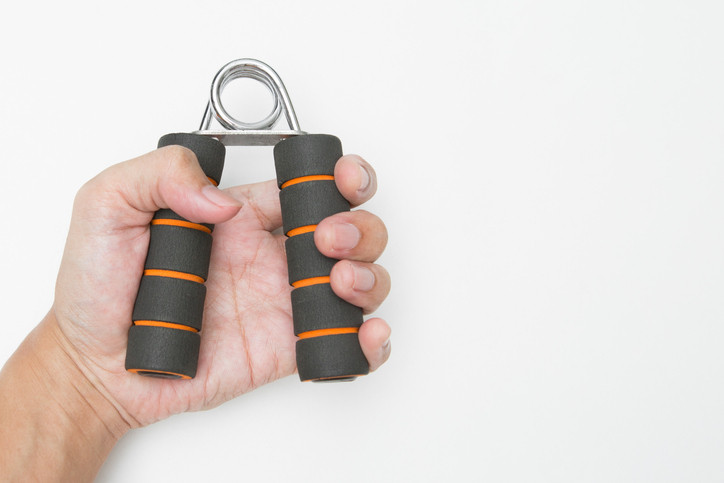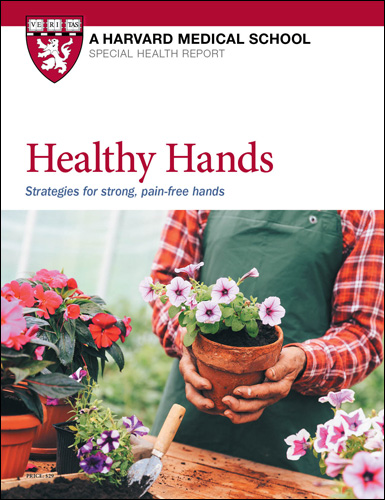Poor handgrip strength in midlife linked to cognitive decline
News briefs
- Reviewed by Anthony L. Komaroff, MD, Editor in Chief, Harvard Health Letter; Editorial Advisory Board Member, Harvard Health Publishing

If you have hand pain or weak muscles, then you know how tough it can be to grip a steering wheel, open a jar, turn a screwdriver, or brush your teeth. But it's important to keep up your handgrip strength, and not just to get through daily tasks. A large study published online June 23, 2022, by JAMA Network Open found that poor handgrip strength in midlife was associated with cognitive decline a decade later. More than 190,000 dementia-free men and women (average age 56) were involved in the study and followed for at least 10 years. Participants took tests that measured handgrip strength, problem-solving skills, memory, and reasoning abilities, and also underwent brain imaging. Compared with people who'd had higher handgrip strength scores at the start of the study, people with lower grip scores were more likely to later have problems with thinking and memory, brain imaging markers of vascular dementia, and diagnoses of dementia. The study was observational and doesn't prove that poor handgrip strength caused cognitive decline. But other studies have suggested a similar association.
Image: © Chalongrat Chuvaree / EyeEm/Getty Images
About the Author

Heidi Godman, Executive Editor, Harvard Health Letter
About the Reviewer

Anthony L. Komaroff, MD, Editor in Chief, Harvard Health Letter; Editorial Advisory Board Member, Harvard Health Publishing
Disclaimer:
As a service to our readers, Harvard Health Publishing provides access to our library of archived content. Please note the date of last review or update on all articles.
No content on this site, regardless of date, should ever be used as a substitute for direct medical advice from your doctor or other qualified clinician.
















